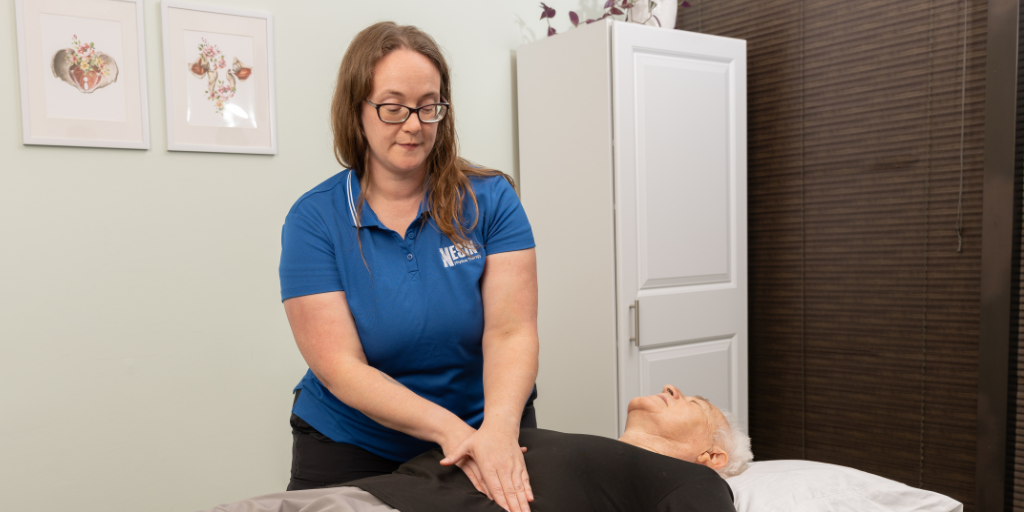As we refresh our routines for spring, it’s the perfect time to think about another kind of reset – your gut health. Constipation is more common than you might think, and it doesn’t just affect your comfort. It can significantly impact your pelvic floor function and overall well-being!
At Nesin Pelvic Health, we specialize in treating the real root causes of constipation. But how exactly can pelvic physical therapy help? Diet, stress, slow gut motility, and pelvic floor tension are just a few of the reasons someone may experience constipation. Pelvic physical therapy addresses these contributing factors in a comprehensive, individualized way.
Here’s a look at how we can help:
Exercise and Movement
Your colon, the long tube that helps move stool through your digestive system, relies on movement to function properly. While it has its own muscles to help move stool, your overall movement helps too.
In physical therapy, we identify muscle restrictions and weaknesses that may be limiting your gut mobility, then work to improve them through targeted exercises. The goal: get things moving naturally.
Manual Therapy
Tight pelvic floor muscles that don’t stretch or relax properly can make it difficult for stool to pass. This is a common but often overlooked cause of constipation.
Our therapists use manual therapy techniques to gently stretch and release tension in these muscles, helping you achieve more complete and comfortable bowel movements.
Review of Diet and Fluids
Pelvic floor physical therapy often includes a lifestyle component. We may ask you to complete a bowel diary and food log so we can identify patterns and triggers. From there, we provide personalized guidance on:
- Hydration
- Fiber intake
- Toileting posture and habits
If needed, we may refer you to a nutritionist for more in-depth dietary support.
Nervous System Regulation
Ever noticed you get constipated when you’re stressed? That’s because the nervous system has a big impact on gut function. The vagus nerve, in particular, plays a major role in regulating digestion and bowel movements.
Your therapist may teach techniques like:
- Breathing exercises
- Vocal toning
- Vagus nerve stimulation
These approaches support nervous system regulation and can improve gut motility.
Biofeedback
Biofeedback helps you improve your body’s awareness of how it is moving. One technique we use is the anorectal balloon—a tool that helps you practice relaxing your muscles in coordination with the sensation of a bowel movement.
Another option is a handheld device that visually shows your pelvic floor muscle tone as it increases or decreases, helping you learn how to better control and relax these muscles.
Bringing awareness to your muscles with biofeedback can be very useful if you have trouble coordinating your pelvic floor muscles to get stool out.
If you’re struggling with constipation, reach out to Nesin Pelvic Health to find out how physical therapy can help!
303 Williams Ave SW, Suite 128, Huntsville, AL 35801
Contact: (256) 513-8442

